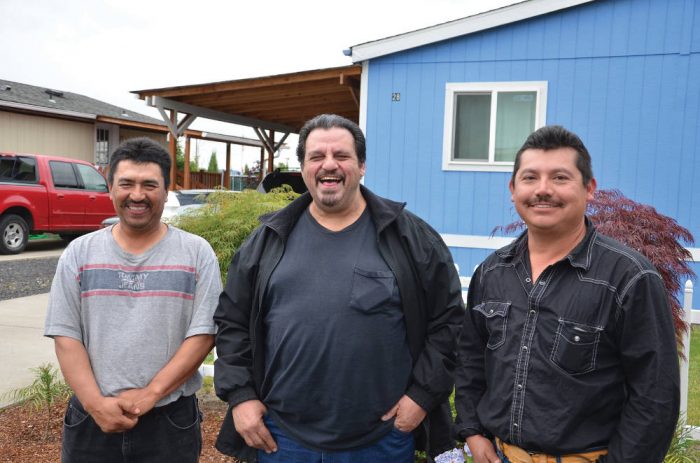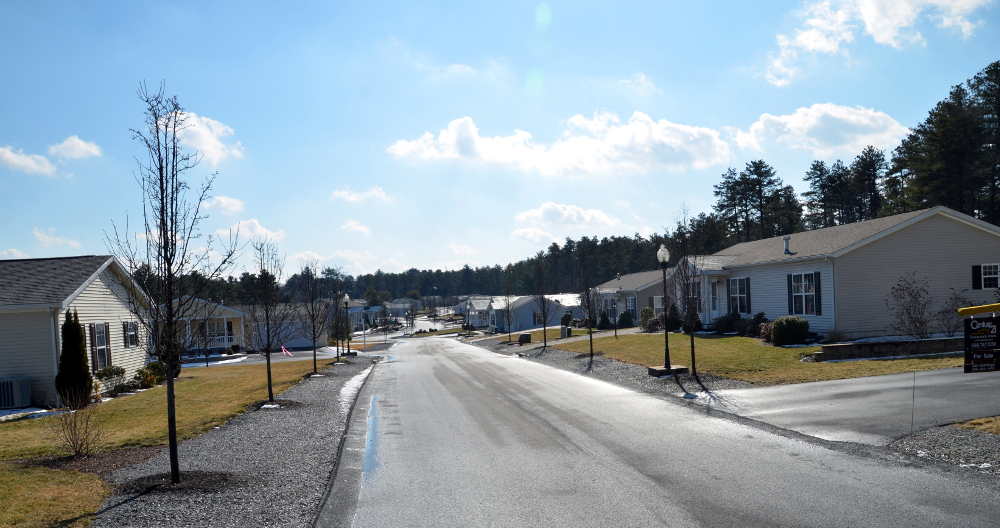
NCBA CLUSA recently sat down with ROC USA’s communications and marketing manager Mike Bullard to learn more about the cooperative’s mission and future initiatives.
Born out of the New Hampshire-based Community Loan Fund and launched in May 2008, ROC USA identifies as a social venture focused on facilitating the conversion of manufactured home communities to resident ownership. In the last five years, ROC USA has helped convert 52 communities across 14 states, keeping 3,447 families in their homes.
“People who live in manufactured homes almost always own their home but rent the land,” said Mike Bullard, communications and marketing manager for ROC USA. He added, “This presents a host of problems particularly when a community goes up for sale. Oftentimes the land is very valuable and the owner will sell it for commercial redevelopment.”
With the manufactured home community owner’s permission, ROC USA embarks upon an extensive process designed to empower residents to purchase their community and take control of their financial security. Following the decision to purchase their community, ROC USA with one of its eight regional nonprofit partners, provides technical assistance to resident-owners so they may incorporate as a cooperative and appoint an interim board of directors. The organization also assists with financing through ROC USA Capital. Resident-owners continue to receive technical assistance through the life of the loan so they can learn to manage their newly acquired multi-million dollar business that is their community.
“At the beginning folks normally think ‘there’s no way for us to do this,’” said Bullard. “In some communities they’ve tried to make a resident purchase before, but not as a cooperative and the math is very daunting. If you have a $2 to $5 million community and 150 homes most folks don’t have that kind of money to purchase it. Our model is low-member share model. The maximum member share is $1,000 but almost all of our communities are between $200 and $500 for the member share.”

“One of the other concerns that often comes up from residents is how they are going to run this organization; they ask ‘If we manage to buy it, how are we going to run it?’ One of the best tools we have is to have the interim board do a community survey and find out what people who live there can do. They are oftentimes surprised to find out what people do for a living. It’s one of the benefits of the co-op model,” said Bullard.
The task of converting into a cooperative is one that requires resident-owners to volunteer their skillsets to strengthen the community. “Every co-op that I’ve been to the people say ‘Before the effort to go co-op we didn’t know too many of our neighbors usually the people immediately left and right of us and a few others but now we know everybody,” added Bullard. Resident-owners find themselves looking out for each other, and helping when tragedy strikes; they feel as though they are now part of a neighborhood and a community.
ROC USA continues to expand its offerings with the addition of the ROC USA marketing program that provides communities with public-facing websites complete with.coop domains designed to promote the community to potential home buyers. The addition of a new online community center launched in late 2012 provides leaders with the ability to peer network via forums and gain valuable training resources from ROC USA staff members.
For more information, Like ROC USA on Facebook and bookmark their website www.rocusa.org.


